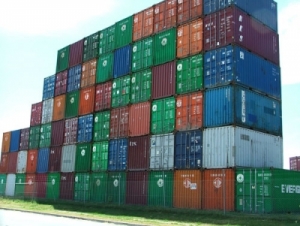NZ Catchment Groups Thrive with ‘Source to Sea’ Approach
The most successful catchment groups in NZ are those that have 'a source to sea' approach.
 The Government's much-publicised goal of primary exports hitting $64 billion by 2025 now looks like a pipe-dream.
The Government's much-publicised goal of primary exports hitting $64 billion by 2025 now looks like a pipe-dream.
The Government's much-publicised goal of primary exports hitting $64 billion by 2025 now looks like a pipe-dream.
Weak dairy prices are a severe drag on reaching the goal, as shown by the latest data from the Ministry for Primary Industries.
MPI's latest Situation and Outlook report, released last week, predicts that by 2020 exports will have reached just $44b; to achieve $64b would require 9.5% growth. The current growth rate is just 3.3%.
Dairy exports are down in value by 6% for the year ended June 2016 and MPI is not expecting any real recovery until 2018; even by 2020 the value of dairy exports is unlikely to equal the record high of 2014, the report says.
The future for meat and wool also makes glum reading, with just a 1% lift in prices.
Beef prices are expected to ease, but wool prices are at a five year record and are expected to remain firm because of lower production
The report says the two saviours of the economy have been the lower NZ dollar and the negligible effect of the El Nino summer weather.
Not surprisingly, horticulture – in particular kiwifruit and apples – turned up trumps with a massive 20% increase in value. Horticultural exports are now worth just on $5b and are predicted to rise to $5.7b in the next four years.
Transforming horticulture is the rise of kiwifruit, especially the SunGold variety. Kiwifruit exports are now $1.6b and are expected to hit $1.9b by 2020. Wine, apple and pear exports also contribute much to horticulture's rise in fortunes.
MPI says dairy will remain in the doldrums for at least another year until global stocks fall, which won't happen quickly. It predicts milksolids production in NZ will fall 1.6% in 2015-16, but will gradually increase to 2020.
Global trade has been thrown into another bout of uncertainty following the overnight ruling by US Supreme Court, striking down President Donald Trump's decision to impose additional tariffs on trading partners.
Controls on the movement of fruit and vegetables in the Auckland suburb of Mt Roskill have been lifted.
Fonterra farmer shareholders and unit holders are in line for another payment in April.
Farmers are being encouraged to take a closer look at the refrigerants running inside their on-farm systems, as international and domestic pressure continues to build on high global warming potential (GWP) 400-series refrigerants.
As expected, Fonterra has lifted its 2025-26 forecast farmgate milk price mid-point to $9.50/kgMS.
Bovonic says a return on investment study has found its automated mastitis detection technology, QuadSense, is delivering financial, labour, and animal-health benefits on New Zealand dairy farms worth an estimated $29,547 per season.

OPINION: Here w go: the election date is set for November 7 and the politicians are out of the gate…
OPINION: ECan data was released a few days ago showing Canterbury farmers have made “giant strides on environmental performance”.